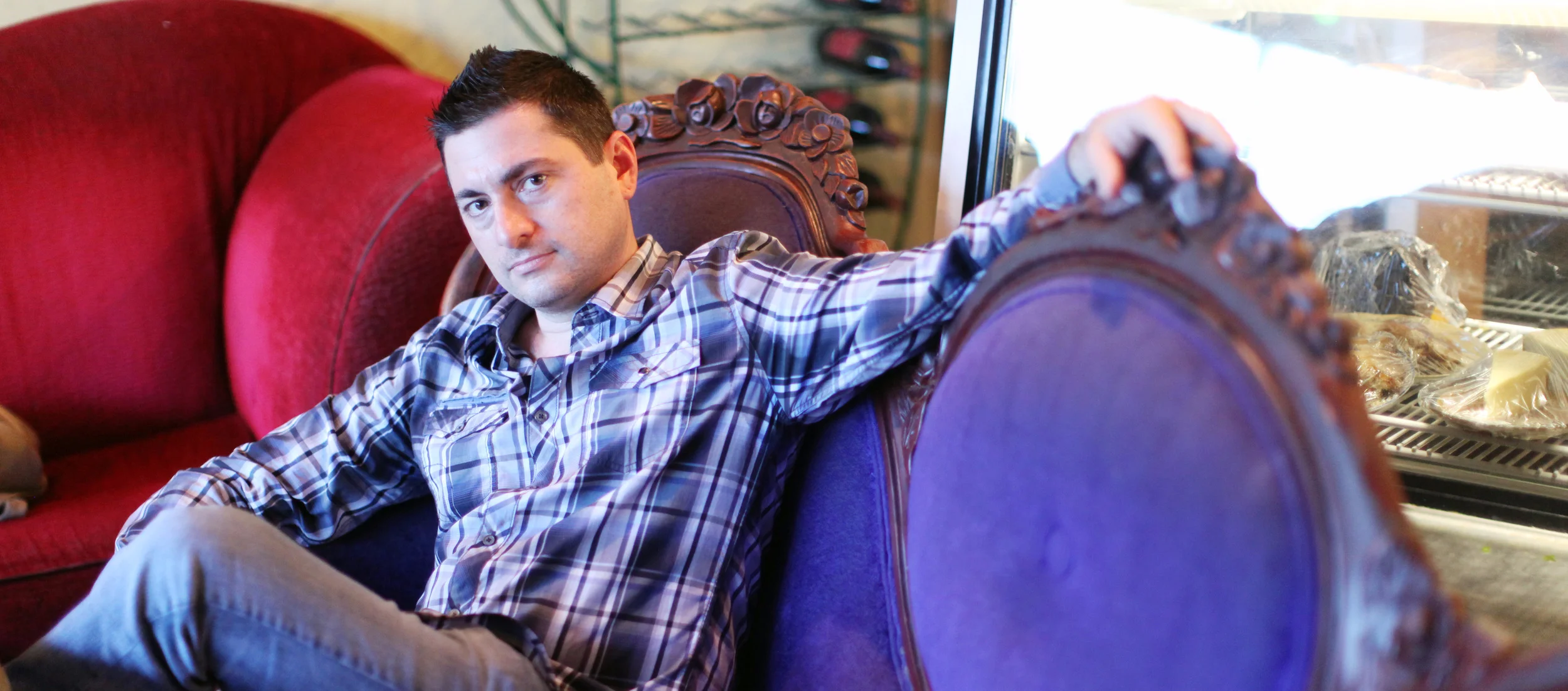Today we're going to be talking about why they pushed us away. You know, a lot of times we're in a relationship and we're happy and we think things are going well. And the next thing you know, your ex has pushed you away, or your partner at the time is pushing you away. There's sabotaging things, there's things going on and he can't figure out why, what is going on with this person?
Margaret (01:08):
You loved me last week and this week you don't.
Craig (01:11):
So Margaret has some great research today that she wants to share on what causes this. Cause it's good to understand what your ex has gone through or your partners are going through within them internally that we don't understand.
Margaret (01:25):
So I'm going to share with you, this particular article was written by one of the Firestones. Now let me clarify the Firestones, I've presented several times work by Lisa Firestone, who talks about your inner inner critic. That mean voice that you have inside that puts you down and encourages you to put yourself down and tells you what's wrong with you. So I finally figured out who they all are. There's Robert Firestone, a psychologist who's quite famous and he married his wife named Tamsen. So she's, Tamsen Firestone. And then there's their daughter, Lisa Firestone. So at least I've got that much straight.
Craig (02:04):
And don't forget about Lenny.
Margaret (02:06):
Get out of here.
Craig (02:07):
Lenny Firestone. He's the one that runs the tires, right?
Margaret (02:10):
Yeah. Don't tread on me. Oh, that was a terrible pun. Anyway, I have finally figured out who these people are, but they all specialize in talking about internal processes and our inner critics and how they can be very destructive to us if we don't know they're there. Okay. And we often hear people after a breakup listing what's wrong with them beating themselves up and doing all sorts of things. Yeah. So fortunately the Firestones are trying to help us not do that. And the particular book I just read recently was called dare to love, meaning, and reminding us that love can be very scary. And for several reasons, which I'm going to talk about one at a time we can run into pushing love away. Not that we meant to, but somehow we get.
Craig (03:00):
You want to think about this long and hard because this is exactly what may have happened with your partner.
Margaret (03:04):
Absolutely. When you're talking about a breakup and so how to deal with your critical inner voice, first of all, you have to figure out that it's there and to do that, what you do is you go back and you think about it. Are you beating yourself up after the breakup? And most people, men and women, are beating themselves up after the breakup. I think men, men fare a little bit better than women do on that, but women are brutal to themselves. Okay. I'm not attractive enough. I wasn't exciting enough. There were all these things I didn't do. So first of all, you want to find out what...
Craig (03:43):
I think men probably focusing on how they were neglectful
Margaret (03:49):
Yeah. "I Spent too much time out of the house. I spent too much time on my computer. I played video games when she would try to talk to me."
Craig (03:57):
'I wasn't attentive enough." Right
Margaret (04:00):
Right. I wasn't. And that's oftentimes the deal. Yep. Okay. so what, what this gentleman suggests is sit down and think about the bad things you say to yourself. And one of the ways that you commonly asked the question is to say, "how are you hard on yourself?" Okay. "How Much blame do you take when things go wrong?" And everybody can answer that question. And most people will. So if your inner voice is saying to you and, and they give you a particular example, and this is a woman named Gloria and Gloria has been married for a few years to a guy named Nick and they have a couple of kids. So she is staying home and taking care of the children. And her inner voice says to her I'm not interesting anymore. I'm not the same person I was when I was working.
Margaret (04:51):
I'm not fun to be with anymore. I'm not attractive. Who am I kidding? I'm fat. I'm not attractive anymore. I'm past my prime. I'm just a chubby matronly mom and Nick doesn't care about me anyway, if it weren't for me, Nick would be happy to just this, let this relationship die out. But that's just kind of how it is with relationships. Talk about negative. Right? Now you notice she hasn't talked to Nick about this. So what the author suggests is you rewrite this in the second person, you rewrite it as if some outside force is saying this to you. Okay. "You are not attractive. You are not interesting anymore." That puts a little bit outside you and invites you to get angry about something being that destructive to you.
Craig (05:45):
Like "who do you think you are?"
Margaret (05:48):
That's exactly right. And that's the goal. All right. So you write it down in the steps with a "you". I'm not interesting anymore becomes "you are not interesting anymore." "You're not fun to be with anymore. You are not the same person you were when you were working", you get the idea, and you verbalize your statements. Even if they feel hurtful and make you sad or angry. Cause once you start understanding that you're saying this to yourself, it's very upsetting. Yeah. Okay.
Craig (06:18):
And you have to realize that many of you were with partners that were doing this to themselves and that they were saying things like this to themselves. And that's, you know, some of the reasons that they broke up with you is because they were doing this to themself and you probably didn't pick up on it, or weren't really aware of that internal struggle.
Margaret (06:40):
Okay. The next step. So you're going to, you're going to figure out what, what you say to yourself. You're going to write it down as a "you," and then you're going to reflect on this. And in this step, people usually recognize that the critical inner voice represents some way in which they were treated during childhood, by a particular parent, another family member, a significant person outside the family, like a coach or a teacher. Okay. We don't get these ideas from nowhere. So the next step is you confront the inner voice. So finally Gloria said to her critical voice, "you're always criticizing me and saying I'm boring and unattractive, exclamation point. You're always telling me that nobody could love me. That's the message that you're getting across to me. Well, it isn't true. I'm the same person I was when Nick met me. And I'm the same person he married. I'm still interesting and fun and attractive. There is nothing wrong with me. The real truth is that all you ever care about is tearing me down and that's all you've ever cared about. Shut up. I'm done listening to you." All right, Gloria. Okay. And that's exactly what you do.
Craig (07:53):
No, maybe don't say this while you're walking through Walmart.
Margaret (07:56):
Probably not a good idea. You might bump into somebody. Um but anyway, that's, that's step one. That's my first message. First. Think about how you do it to you.
Craig (08:08):
Yeah. And many of you are doing this, but also understand that, you know, your partners are going to do this to themselves too. And if you think back, you may have heard them saying things to themselves about themselves that were really critical. Right.
Margaret (08:23):
Just pick up on it. Yeah. "I'm so dumb. I'm so clumsy. I'm so stupid." But anyway, this poor Nick I guess he works hard and he's out of the house quite a bit, but he's trying to set them up for a future and he has no idea she's thinking these things. Yeah.
Craig (08:38):
And so it's helpful to understand that, you know, you look so much at the ex making the decision or your partner making decision to end it, but they were going through an internal struggle
Margaret (08:52):
You don't know what they were being told. She was being told that your husband really isn't that into you anymore. And it was absolutely not true. Yeah. He was out trying to make a living and trying to better them.
Craig (09:04):
Next thing you know, they've left you and you're like, "what did I do wrong?"
Margaret (09:08):
And poor Nick. He didn't do anything wrong.
Craig (09:11):
Yeah. So it's helpful to understand, you know, some of the internal processes that we have in our mind, the internal critic, right. You said is very hard to ignore,
Margaret (09:23):
Very hard to ignore. If you're having those thoughts and beating yourself up and beating yourself up as a, is a common way to say it it's never helpful and it could be distorted. Yeah. All right. So all sorts of things can be going on inside your partner that you don't even know about. All right. And it's not always about you.
Craig (09:44):
Absolutely. Right. Helpful stuff.

